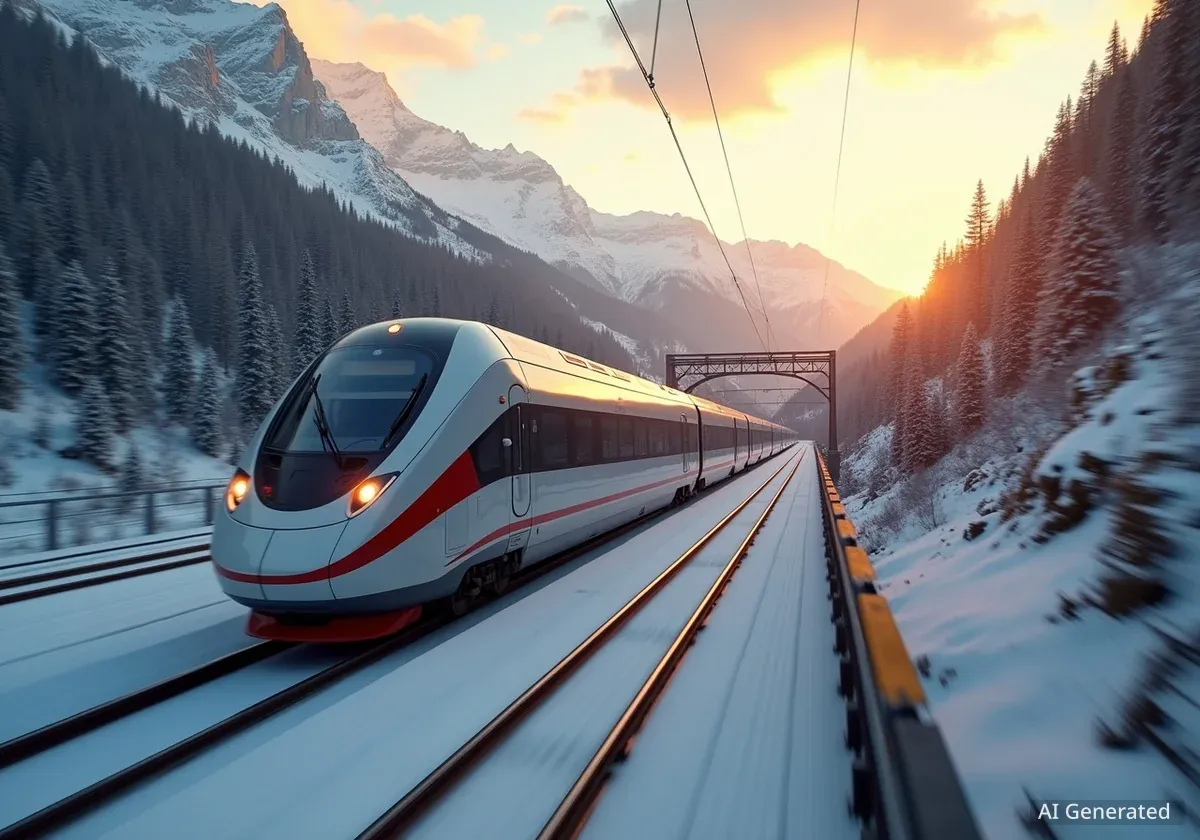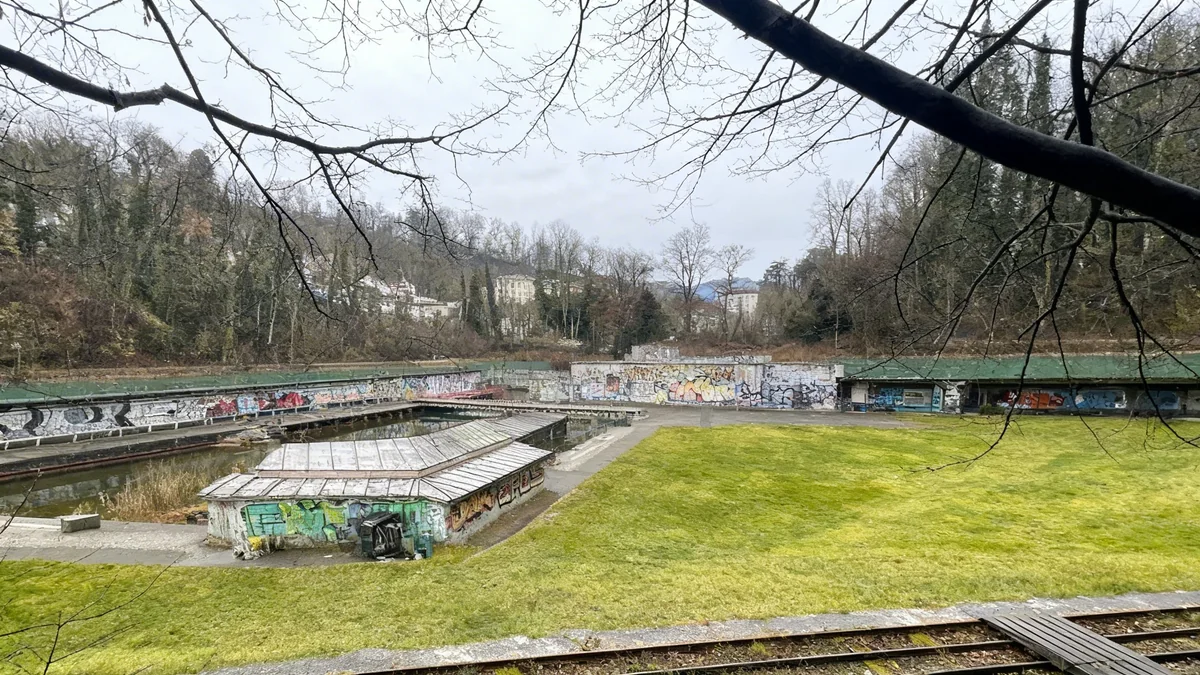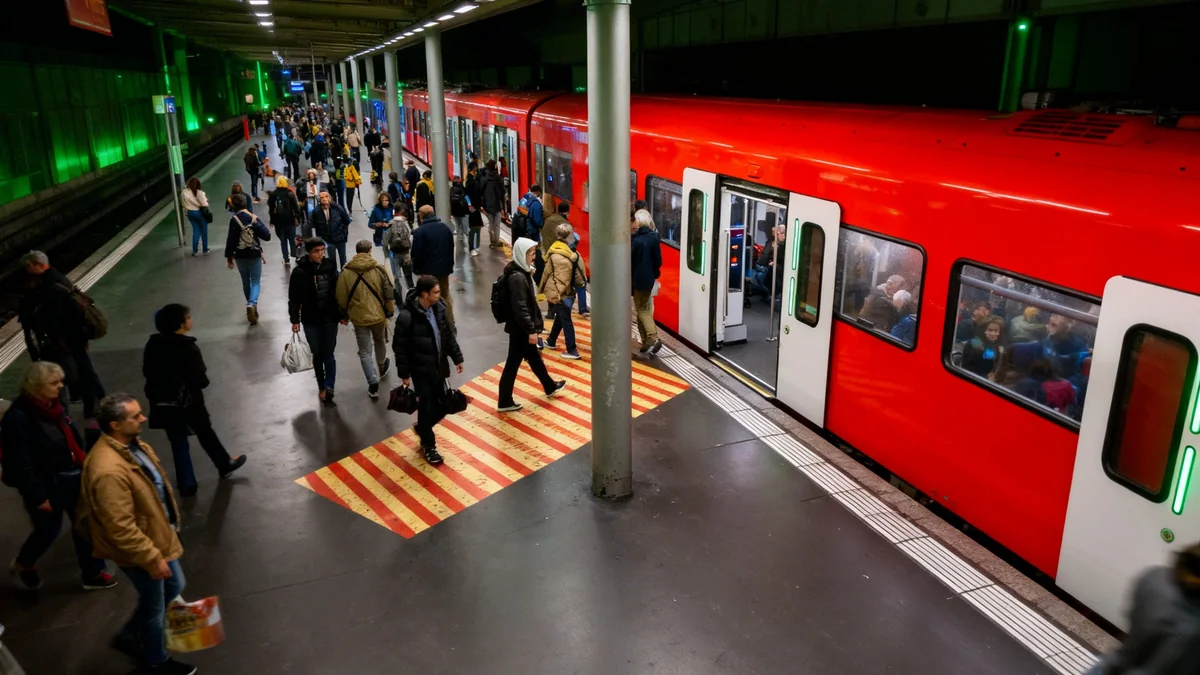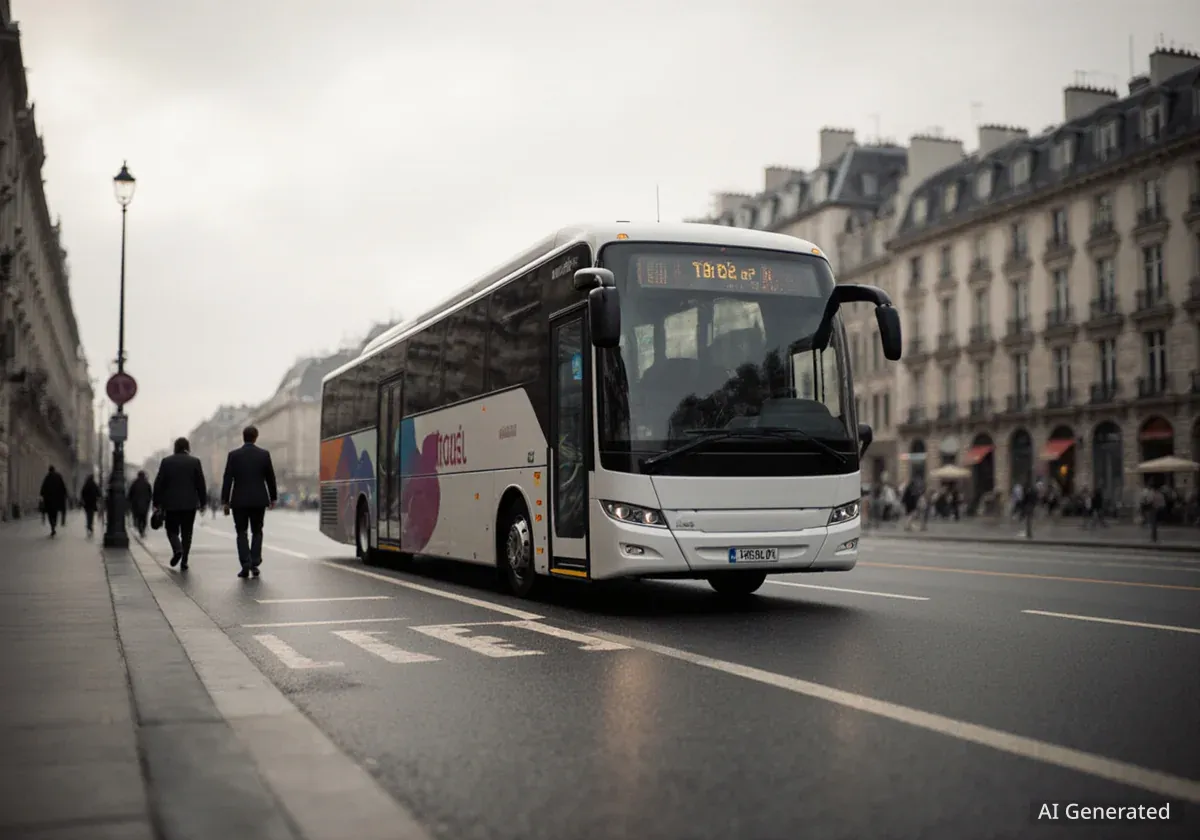Swiss Federal Railways (SBB) has announced a landmark CHF 2.5 billion investment plan to modernize its high-speed rail network. The multi-year project aims to introduce a new fleet of high-speed trains and upgrade key infrastructure, significantly reducing travel times between major Swiss cities and international destinations.
The initiative, named "Rail Future 2040," is expected to commence in late 2025 and represents one of the most substantial upgrades to the nation's public transport system in over a decade. Officials state the plan will enhance capacity, improve punctuality, and strengthen Switzerland's position as a central European transport hub.
Key Takeaways
- Swiss Federal Railways (SBB) will invest CHF 2.5 billion in its high-speed rail network.
- The "Rail Future 2040" project includes purchasing a new generation of high-speed trains.
- Key infrastructure, including tracks and signaling systems, will be upgraded.
- The goal is to reduce travel times, increase service frequency, and improve reliability across the network.
Details of the Investment Plan
The core of the CHF 2.5 billion investment is allocated to two primary areas: fleet acquisition and infrastructure enhancement. According to SBB, approximately 60% of the budget, or CHF 1.5 billion, is designated for the procurement of a new generation of high-speed trains.
These new trains will be designed to operate at speeds up to 350 km/h, a notable increase from the current fleet's capabilities. The remaining CHF 1 billion will be used for extensive upgrades to critical sections of the rail network, focusing on the Geneva-Zurich and Basel-Milan corridors.
Fleet Modernization at the Forefront
The acquisition process for the new trains is set to begin with an international tender in early 2025. SBB has outlined strict criteria for potential suppliers, emphasizing energy efficiency, passenger comfort, and advanced digital connectivity.
"Our goal is not just to be faster, but to be smarter and more sustainable," said Vincent Ducrot, CEO of SBB, in a press conference on Tuesday. "This new fleet will set a new standard for rail travel in Europe, offering an unparalleled passenger experience while minimizing our environmental footprint."
The new trains are expected to feature enhanced accessibility for passengers with reduced mobility, spacious family zones, and dedicated business compartments equipped with high-speed internet.
By the Numbers: Rail Future 2040
- Total Investment: CHF 2.5 billion
- Fleet Acquisition: CHF 1.5 billion
- Infrastructure Upgrades: CHF 1 billion
- Target Top Speed: 350 km/h
- Project Timeline: 2025 - 2040
Impact on Travel Times and Connectivity
The primary objective of the "Rail Future 2040" plan is to deliver tangible benefits to passengers through reduced travel times. SBB projects that the upgrades will shorten the journey between Geneva and Zurich by approximately 30 minutes, bringing the total travel time down to just under two hours.
Similarly, international connections are set to improve. The travel time from Zurich to Milan is expected to be reduced by up to 45 minutes, making rail a more competitive option against air travel on this popular route.
Context: Switzerland's Rail Strategy
Switzerland is renowned for its dense and efficient public transportation network. This investment aligns with the country's long-term strategy of promoting rail travel as a sustainable alternative to road and air transport. The plan builds upon previous major projects like the Gotthard Base Tunnel, which already revolutionized trans-Alpine travel.
Phased Rollout and Construction
The infrastructure work will be conducted in phases to minimize disruption to existing services. The initial phase will focus on upgrading signaling systems to the European Train Control System (ETCS) Level 2, a crucial step for enabling higher speeds and increasing line capacity.
Subsequent phases will involve track realignments and the reinforcement of bridges and tunnels along key segments. SBB has committed to coordinating closely with cantonal authorities to manage the impact of construction on local communities.
Economic and Environmental Implications
The CHF 2.5 billion investment is expected to provide a significant boost to the Swiss economy. According to an economic impact assessment released by SBB, the project will create or sustain several thousand jobs in construction, engineering, and manufacturing over its 15-year duration.
A significant portion of the infrastructure contracts is expected to be awarded to Swiss companies, further stimulating local economic activity. The focus on sustainability extends beyond the trains themselves.
"Every franc invested in our rail infrastructure is an investment in a greener future for Switzerland," stated Federal Councillor Albert Rösti, head of the Department of the Environment, Transport, Energy and Communications. "By making train travel faster and more convenient, we encourage a modal shift away from less sustainable forms of transport."
SBB estimates that the completed project will contribute to a 15% reduction in CO2 emissions per passenger-kilometer compared to the current network, thanks to more efficient trains and an increased number of travelers choosing rail over cars or planes.
Challenges and The Path Forward
While the plan has been met with broad support, SBB acknowledges the challenges ahead. Securing the complex planning permits and managing a project of this scale on a live rail network will require meticulous execution.
Financing for the project will come from a combination of SBB's own capital, federal government contributions, and loans from the financial markets. The federal government has already signaled its strong support for the initiative as part of its national infrastructure strategy.
The first of the new high-speed trains are anticipated to enter service around 2030, with the full project slated for completion by 2040. This long-term vision aims to ensure that Switzerland's rail network remains a world leader in efficiency, reliability, and sustainability for decades to come.




